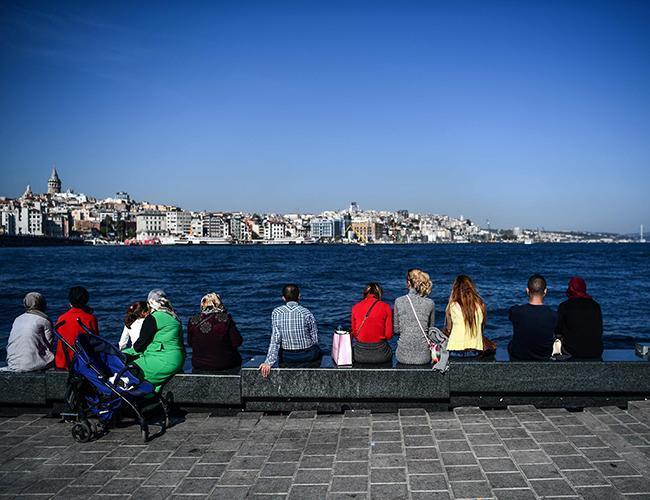
Istanbul ranked as the 10th worst megacity for women and the sixth worst when it came to women at risk of sexual violence and harassment, according to the first international experts’ poll on how women fare in cities with over 10 million people.
The Thomson Reuters Foundation survey asked experts in women’s issues in 19 megacities how well women are protected from sexual violence and oppressive practices, as well as whether they have access to good healthcare, finance and education.
Istanbul, Turkey’s largest city with an estimated population of 14.4 million, ranked as the 13th worst megacity when it came to protection from oppressive practices “including female genital mutilation, early marriage, forced marriage and female infanticide,” the survey stated.
On the issue of access to healthcare, Istanbul ranked as 13th worst megacity out of 19 in terms of how much access women have to healthcare, including control over reproductive health and maternal mortality.
On the issue of economic opportunities, another area that the survey considered, Istanbul was the 8th worst megacity, measuring women’s access to economic resources such as education, ownership of land or other forms of property, and financial services such as bank accounts.
The survey was conducted in 19 of 31 megacities listed by the United Nations, with the poll only conducted in the largest megacity of each country.
The survey results were based on a minimum of 15 experts in each country. In total, 380 experts were surveyed online and by phone between June 1 and July 28 with 20 experts questioned in each of the 19 cities, with a response rate of 93 percent.
Respondents included aid professionals, academics, healthcare staff, non-government organization workers, policy-makers, development specialists and social commentators.
According to the poll results, Cairo, the capital of the Arab world’s most populous country, fared worst globally, followed by Karachi in Pakistan, Kinshasa in the Democratic Republic of the Congo, and the Indian capital New Delhi.
London was ranked as the most woman-friendly, followed by Tokyo and Paris.
Women’s rights campaigners in Cairo said traditions dating back centuries made it a tough city, with discrimination rife.
Sexual Harassment
Delhi and Sao Paulo emerged as the worst cities when respondents were asked if women could live there without the risk of sexual violence, including rape, attacks or harassment.
The fatal gang rape of a woman on a Delhi bus in 2012 led to a wave of public protests and jolted many in the world’s second most populous country out of apathy over the treatment of women, forcing the government to toughen penalties for sex.
Since then a spike in media reports, government campaigns and civil society programs, have increased public awareness of women’s rights and emboldened victims to register abuses. Authorities recorded four rapes every hour in India in 2015.
The Thomson Reuters Foundation’s seventh annual perception poll was conducted as cities grow rapidly and the future looks increasingly urban, with 66 percent of people expected to live in urban areas by 2050, up from 54 percent currently.
The United Nations says the number of megacities has tripled since 1990 to 31, including six in China and five in India, and forecast this will rise to 41 by 2030. The poll was only conducted in the largest city in each country.
Campaigners said understanding and preparing for key trends in urbanization in coming years is crucial to meet the U.N.’s latest set of global goals to end poverty and inequality by 2030. The poll was designed around U.N. targets.